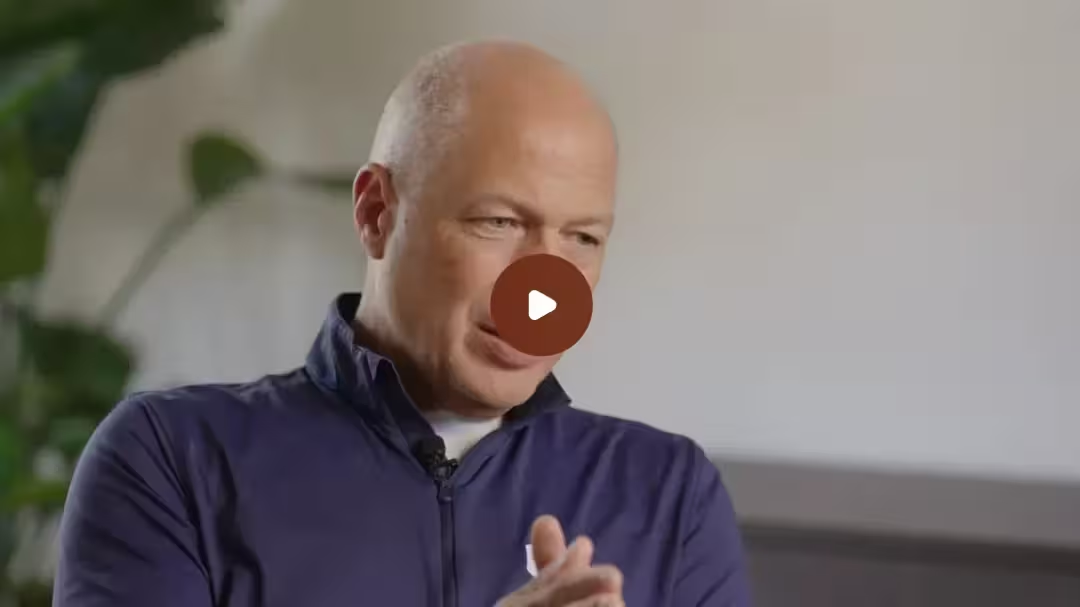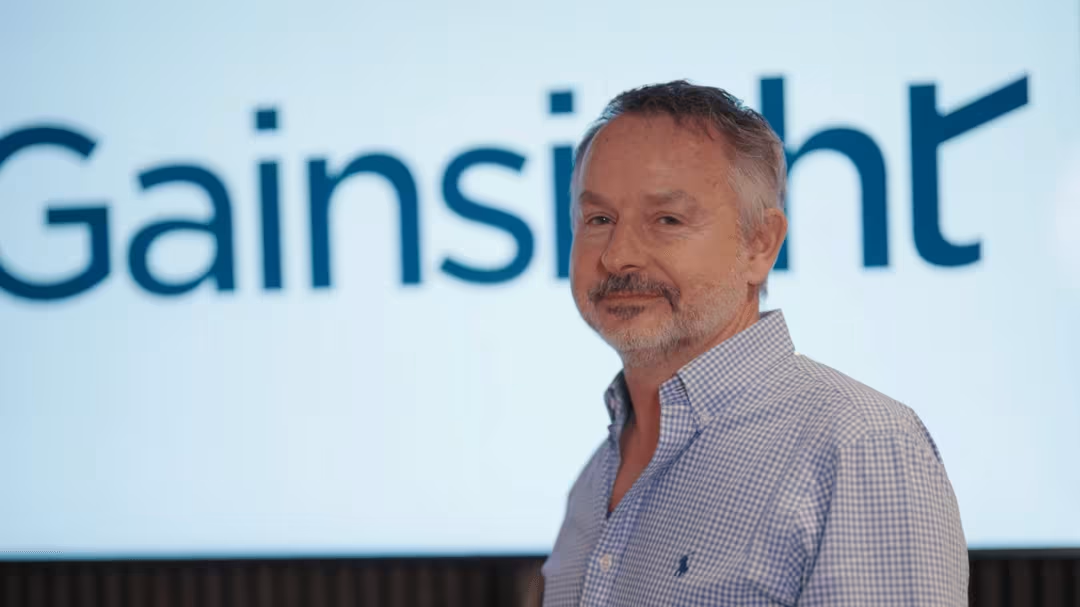
Gilles and I "met" over WebEx a few weeks ago. I was fascinated to understand how Gilles had transferred his learnings from Accenture to the super fast growing SaaS business that is Showpad. In particular, how one can keep a cool head and sales processes in order amongst changing culture and leadership, hyper-growth, and acquisitions.
As the WebEx connection steadied itself, the interview began...
Rory Brown (RB) - How did you get into sales ops?
Gilles de Clercq (GC) - Prior to joining Showpad I was in IT consulting at Accenture. I executed large IT projects for clients, predominantly in the financial industry. My role was very client driven.
Then I got approached by Showpad. In fact, the purpose of the job is similar but rather than external clients I've moved to internal clients. At Showpad, I'm primarily focused on sales. I do various projects, long and short term, and I'm also responsible for day to day reporting.
RB - What have you learnt from your time at Accenture that helps you in your role now?
GC - Project management. Juggling requirements is often very important, certainly at Showpad where we are constantly looking to innovate in our industry. It's a very young industry so we have to be agile in every process and approach we have.
Secondly, flexibility. Nothing is fixed here. Everything can change.
Thirdly, willingness to collaborate across teams is very important. The idea that there is no such thing as different departments.
RB - What were the first issues you wanted to tackle when you started your role at Showpad?
GC - I first focused on getting the forecasting right. Since we are still a young company it's very difficult to forecast accurately, to have proper pipeline management and proper stage management. Asking questions like 'what can we expect to come in this week, this month, this quarter? What are the underlying drivers of these? What does our sales need in terms of enablement and processes in order to be more successful at their jobs, both qualitatively and quantitatively?' Then bringing it all into practice with training.
RB - How does the role that you're doing now differ from the role when you first started?
GC - We are much more of a global company now. We have three offices, with lots of new joiners and teams. Roles have evolved. We've added different layers from the mid-market segments to the more enterprising global accounts segment. Where previously everything was more mixed, we've altered our business development approach. We've rolled out a much more elaborate partner program and so on.
RB - What would you say are the fundamentals of sales operations?
GC - The key areas for me are the metrics. What are we looking at, and why are we looking at it? For every department, there are three or four metrics. For sales it's average sales cycle, average deal size, pipeline coverage at the different weeks per quarter and lastly, target attainments, both individually and across teams.
RB - That's great. I'd be interested to know why you’ve identified those metrics as the most important to the business?
GC - Since we have aggressive targets quarter over quarter every year, we cannot have a bad quarter. So we need to scale as fast as possible and this needs a lot of input from the whole organisation. Hence why the key metrics are the most important to us. The moment our average sales cycle drops, or our average deal size drops, or our pipeline coverage is not good in certain geographies, we will soon have a problem. So if we don't monitor this day by day and report as such to the executives, they will have a problem sooner rather than later.
RB - So it's about giving them visibility.
GC - Yes it's about giving them visibility to make their key actions and responsibilities even more transparent than they already are.
RB - This leads me to the next question. Sales Ops driving enablement is an interesting topic at the moment. What would you say is your experience of the correlations between the problem areas in data and enabling your sales team?
GC - Here at Showpad we have three teams. There is the operations team, focused on the technical part, the processes and tools. Next to us we have the enablement team who are responsible for enabling our teams, coaching, getting up to speed on the latest progressions, getting the right training in place. They work closely with the product marketing team, who are responsible for putting the newest release and product trends into actionable one pagers, training videos etc. So we have operations working with enablement, and enablement working with product marketing.
RB - Fantastic. What would say the collaboration between operations and sales enablement focuses on?
GC - We work primarily together with sales enablement because everything that they preach needs to be in place in terms of processes. For example, if we launch a new product we need to make sure that it's all available in our CRM, that sales have the right accesses and the right guidance with the different tools. If we price a certain feature at price X we need to make sure that the given pricing guidelines are all implemented in the system in the correct way.
RB - That makes complete sense. Going back to the metrics, I'd be interested to know how frequently you look at the metrics, spotting when they might go off course.
GC - We have several sheets which are prepared each week using exports and v look up filters in Google sheets. This is typically prepared by business operations for the executives, who then have a weekly call per region on the exec level.
RB - The next question is a bit different. In Europe, we're very aware of the shift in importance of sales operations. What are your thoughts on this?
GC - I think every modern sales organisation is moving further towards SaaS solutions for their day to day jobs. We are in the API era so we want everything to be integrated, whether it makes sense or not! That's typically the responsibility of Business Operations. We have data enrichment tools, we have LinkedIn Sales Navigator, we have CRM, we have marketing automation tools, we have content management systems, we have Showpad - everything needs to integrate and everyone needs to know how to use each specific tool.
Since we're an ever-evolving business, our tools also evolve frequently and making this happen is also the responsibility of business operations, making sure we have the right tools, the right data and the right processes in place.
RB - Moving on to technology. What tech are you leveraging throughout your sales funnel right to the end?
GC - Top of the funnel we have marketing, which is primarily inbound and that's managed through Marketo. We use Outreach to build sequences in order to target the right prospects and to qualify them. Then LinkedIn Sales Navigator is used to get the most interesting prospects. Our CRM is Salesforce. This of course integrates with Showpad.
Then we have a couple of data enrichment tools both globally and more regionally where we lever account data. For the UK market, for example, we have a specific tool with lots of account data called Duedil. We have Datafox in the US.
Every qualification happens in Salesforce and everything we hand over to sales happens there both for inbound and sales qualified opportunities. Sales are responsible for managing their pipeline there. Ideally upon every conversion into a contract the handover happens to post-sales and customer success managers.
Post-Sales are using Taskray as a project management tool. The CS team are using Periscope to get live usage data and also Gainsight, which is a customer engagement platform.
Then the entire renewal and upsell and new opportunity management happens in Salesforce where we have direct link to Netsuite, which is our finance tool.
RB - Do you use anything like phone diallers or electronic signature tools that provide shortcuts for the sales team?
GC - Yes we have an electronic contract composer, our T&Cs are all stored in Salesforce, we use Conga to generate sales orders and we send these out through DocuSign.
RB - Let's say you could rewind time to the beginning of your Sales Ops role. What would you approach first, and would you do anything differently?
GC - As I did in my current role, I would focus on the fundamentals. You have to get these right in order to be successful. For example, if the sales team doesn't close enough this will probably be related to pipeline. Then we would ask what the drivers of pipeline are. Is it purely opportunity management or does it come from a different angle? I would speak to the leaders in different departments and ask them what they need. Okay, so they need to hit their targets. What does this mean? Okay, you have to get opportunities. Then you gradually get more and more granular in the key drivers, so you can focus on improving the business.
Then you look at your business ecosystem. Lots of tools are purchased by each department. You have to be really critical about what has been purchased and what the money is being spent on. Of course, nowadays every tool has an advantage for someone, but you have to tailor your business. It's better to focus on three to four tools than having 22 tools, each for one use.
RB - So making sure everyone is getting value from the tools that you do have. The next question is going back to the shift of sales ops and its increasing importance. How senior do you see this role getting? Will it become a C-level position?
GC - It's very much correlated with how each business is evolving. If the business only has 10 people, you don't need the big c-level person to run the business operations. But for every organisation of a certain level with different layers, local teams and global teams, you will need business operations at c-level. A lot of departmental leaders often get the process, they get the drivers, but they don't know the raw details. Typically, business operations is a much better partner for tackling the day to day problems but also keeping the helicopter view for seeing the underlying drivers of the business.
RB - In your last 18 months, what have the biggest challenges been?
GC - Since we are in software, we are ever evolving. I think we have three or four releases per year. So the message we bring to our prospects and clients is evolving every three to six months. In order to do so, this requires a lot from both our back end in terms of product engineering but also the GTM team since the message we bring has to be unified from the top of the funnel to securing the sales contract. To give you an example, we've introduced over 20 features over the last six months, so we need to know which feature every individual client is using. It's very interesting but also very demanding for the sales teams, the customer success teams, legal, finance and so on. When you change your offering that much, it demands a lot. But it's also interesting.
RB - How would you describe the relationship you have with your sales leaders? What are you helping them do and how does it all work?
GC - The relationship is closely correlated to how their individual sales performance looks for that period. It can be very good if their performance is very good. We know every inch of performance, we might know it better than the sales teams themselves. So there is no messing around when it comes to discussing numbers and performance. Hence the relationship is closely correlated to their day to day performance.
RB - That brings me to the last question. What famous duo would you liken to a typical VP Sales/Sales Ops relationship and why?
GC - Alfredo the cook (VP Sales) and Remy the rat (Sales Ops) from the movie Ratatouille.
Remy gives ingredient recommendations to Alfredo and advises his movements so Alfredo can shine in the kitchen and deliver delicious meals to the restaurant.

Want to get more insights from the sales ops leaders? Read our other posts in the sales ops interview series.
At Kluster, we're big fans of sales operations...
We recognise the growing importance of sales operations. No longer seen as the function that provides spreadsheets, sales operations is integral to building a repeatable, scalable sales machine.
That's why we built Kluster. We make analytics and forecasting systems for you so you can spend time doing what you do best: uncovering trends and delivering growth defining insights.
Kluster gives you total visibility into the effectiveness of your sales machine and helps you generate credible forecasts to revenue leaders and the board.


.svg)
.svg)
.svg)
.svg)










